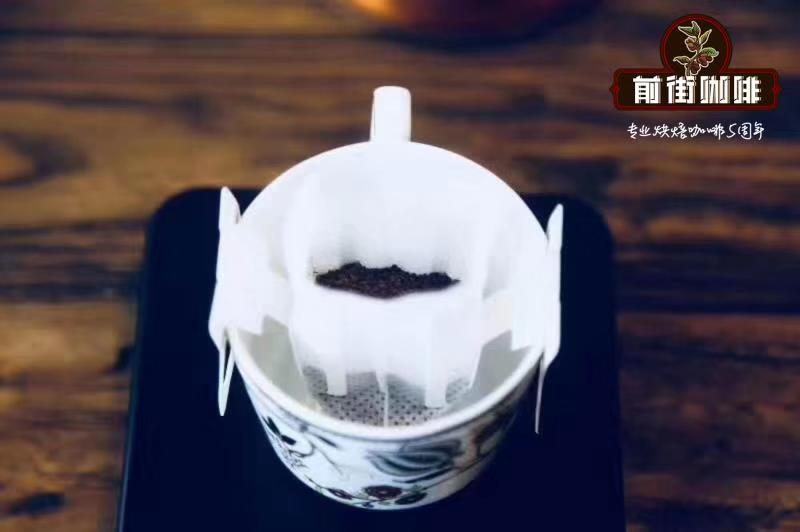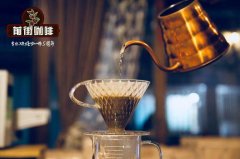What are the characteristics of Salvadoran sun-made coffee? a brief introduction to the taste of Salvadoran coffee

Professional coffee knowledge exchange more coffee bean information please follow the coffee workshop (Wechat official account cafe_style)
A brief introduction to El Salvador Sun-dried Pacamara Coffee in Front Street
The fate of the coffee industry is closely linked to the fate of El Salvador. Before coffee was grown in large quantities, El Salvador's economic exports depended mainly on indigo dyes, which had to be turned to coffee because of the invention of chemical dyes in the mid-19th century. The President of El Salvador, General Guilado Barrios, is said to be the first person to grow coffee in the country. In the middle of the 19th century, the government took measures to reduce taxes, abolish export taxes and exempt coffee farmers from military service to promote the development of coffee industry. By the 1880s, El Salvador coffee production reached its peak, once ranked fourth in the world, accounting for half of the gross domestic product, is a veritable "coffee republic".
Coffee is El Salvador's most important export. The volcanic area with an elevation of 900m to 1500m provides unique conditions for coffee cultivation.
Large coffee plantations have improved production efficiency, and the variety and quality of their coffee have maintained an excellent reputation in the international market. Coffee is not only the main agricultural product and economic source for export in El Salvador, but also coffee income makes an important contribution to the construction of the country's roads, seaports, churches and government buildings, catalyses and promotes the development of cotton and light industry.
The civil war cut off Salvadoran coffee production from the international market, but unexpectedly saved it from changing to newly cultivated high-yielding varieties like other coffee-producing countries, thus retaining many unique native varieties, such as bourbon, Pacas, Pacamara and so on. These special varieties have a balanced taste, soft acidity, or citrus aroma, or full-bodied cocoa, are favored by coffee drinkers, and their price is several times higher than that of ordinary coffee, thus giving Salvadoran coffee a place at the high end of the market.
It is the coffee harvest season from November to March every year. Because of the mountain planting, the local coffee is picked by hand. Coffee varieties are characterized by native bourbon species.
El Salvador has unique natural conditions for growing special coffee. First of all, the volcanic soil here is well drained and rich in minerals, and secondly, the coffee plantation has a long history and retains the tradition of grading coffee at the altitude at which it grows. The corresponding risk is that the output of special coffee is lower than that of ordinary coffee, and its ability to resist diseases and insect pests is not as strong as that of commercial varieties, and the saplings need to be refurbished every 10-12 years. Growing coffee on high mountains and steep slopes requires manual care and harvest, which further increases the cost.
El Salvador sun Pacamara
Manor: Camellia Girl Manor
Class: SHG boutique pacamara
Planting height: 1800 meters
Treatment: insolation
Taste description:
A very clean sun bean style, full-bodied sun taste, fresh and sour peach juice and grape juice, coupled with delicate flower aroma, excellent balance makes the flavor of the whole bean unique. Looking forward to feeling the rich taste of the sun with you!
END
Important Notice :
前街咖啡 FrontStreet Coffee has moved to new addredd:
FrontStreet Coffee Address: 315,Donghua East Road,GuangZhou
Tel:020 38364473
- Prev

What are the reasons for the mellowness of Guatemala Antigua?
Professional coffee knowledge exchange more coffee bean information please follow the coffee workshop (Wechat official account cafe_style) front street Antigua Guatemala coffee brief introduction Antigua coffee is sought after by the vast majority of coffee lovers only because of its distinctive flavor. Because it is planted on the hillside of the volcano, it retains its own characteristics better than Costa Rica.
- Next

Characteristics of Costa Rican coffee raw beans introduction to the taste of Costa Rican coffee black honey
Professional coffee knowledge exchange more coffee bean information please follow the coffee workshop (Wechat official account cafe_style) the front street of Costa Rica Stonehenge Black Honey introduction quality Costa Rican coffee is called extra hard beans, this kind of coffee can grow more than 1500 meters above sea level. Generally speaking, the higher the altitude, the better the coffee beans, not only because higher altitude can increase the acidity of coffee beans and thus increase the wind.
Related
- Beginners will see the "Coffee pull flower" guide!
- What is the difference between ice blog purified milk and ordinary milk coffee?
- Why is the Philippines the largest producer of crops in Liberia?
- For coffee extraction, should the fine powder be retained?
- How does extracted espresso fill pressed powder? How much strength does it take to press the powder?
- How to make jasmine cold extract coffee? Is the jasmine + latte good?
- Will this little toy really make the coffee taste better? How does Lily Drip affect coffee extraction?
- Will the action of slapping the filter cup also affect coffee extraction?
- What's the difference between powder-to-water ratio and powder-to-liquid ratio?
- What is the Ethiopian local species? What does it have to do with Heirloom native species?

